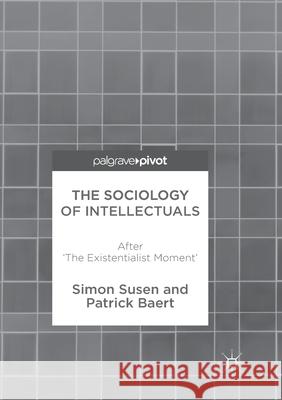The Sociology of Intellectuals: After 'The Existentialist Moment' » książka
topmenu
The Sociology of Intellectuals: After 'The Existentialist Moment'
ISBN-13: 9783319870267 / Angielski / Miękka / 2018 / 194 str.
Kategorie:
Kategorie BISAC:
Wydawca:
Palgrave MacMillan
Język:
Angielski
ISBN-13:
9783319870267
Rok wydania:
2018
Wydanie:
Softcover Repri
Ilość stron:
194
Waga:
0.25 kg
Wymiary:
21.01 x 14.81 x 1.12
Oprawa:
Miękka
Wolumenów:
01
Dodatkowe informacje:
Wydanie ilustrowane











